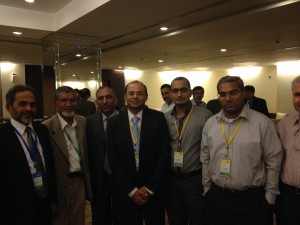
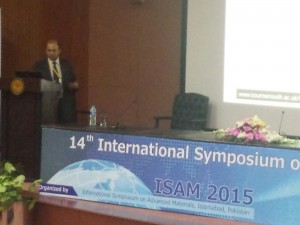
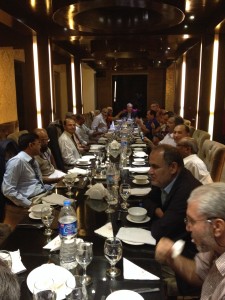
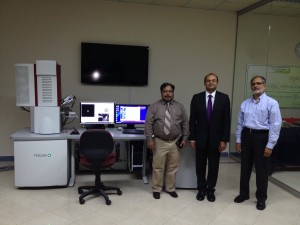
Dr Zulfiqar Khan was recently selected by invitation by the Pakistan President’s Highly Qualified Professionals (HQPs) Programme, part of PPQP, managed and administered by the Ministry of Federal Education & Professional Training Government of Pakistan.
This programme funded Zulfiqar’s participation in the 14th International Symposium on Advanced Materials Oct 2015 held at National Centre for Physics Islamabad as invited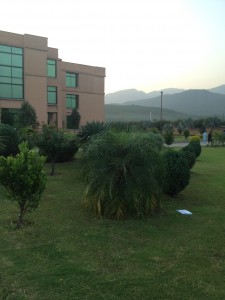 speaker and guest speaking at key universities and research institutes.
speaker and guest speaking at key universities and research institutes.
This conference is held every two years and has been successfully running for the last 28 years. This conference attended by high profile researchers from Bangladesh, China, Egypt, Germany, Japan, Jordan, Malaysia, Pakistan, Saudi Arabia, Singapore, Serbia, Turkey, UK (Bournemouth and Leeds) and US. The conference provided and excellent platform for disseminating latest research findings, exchange of ideas, networking and initiating research collaborations.
Zulfiqar presented latest findings in Surface Engineering through nano coatings (thin films 300-400 nm and up to 5 μm) incorporating corrosion. This research is conducted at the Sustainable Design Research Cluster with PGRs (Parisa Pashaei, Rizwan Bajwa and Hammad Nazir).
He also led the discussion panel on Surface Engineering & Ceramics as Panel Chair.
The Federal Minister for Planning, Development & Reform Professor Ahsan Iqbal spoke at the closing ceremony of the 14th International Conference on Advanced Materials ISAM 2015. He informed the conference delegates on the Government strategy for research & development.
This programme also included Zulfiqar’s invited guest speaking at key Universities and research institutes as Institute of Space Technology, National Institute of Vacuum Science & Technology NINVST, National Centre for Physics NCP and National University of Sciences & Technology NUST. He also held meetings with key staff including DG NINVAST, Director NCP, Deans NUST Mechanical and Chemical & Manufacturing Engineering, Rector GIK (Ghulam Ishaq Khan Institute of Engineering Sciences & Technology), researchers and students.
His participation in the ISAM 2015 and invited guest speaking has provided a platform for incubating international research and education collaborations and promoting BU as an international leader in nano materials & corrosion research.
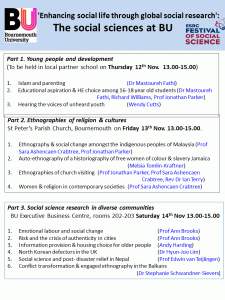







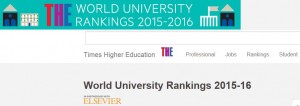















 Dr. Ashraf cited on ‘Modest Fashion’ in The Guardian
Dr. Ashraf cited on ‘Modest Fashion’ in The Guardian NIHR-funded research launches website
NIHR-funded research launches website Academics write for newspaper in Nepal
Academics write for newspaper in Nepal New paper published on disability in women & girls
New paper published on disability in women & girls Global Consortium for Public Health Research 2025
Global Consortium for Public Health Research 2025 MSCA Postdoctoral Fellowships 2025 Call
MSCA Postdoctoral Fellowships 2025 Call ERC Advanced Grant 2025 Webinar
ERC Advanced Grant 2025 Webinar Horizon Europe Work Programme 2025 Published
Horizon Europe Work Programme 2025 Published Horizon Europe 2025 Work Programme pre-Published
Horizon Europe 2025 Work Programme pre-Published Update on UKRO services
Update on UKRO services European research project exploring use of ‘virtual twins’ to better manage metabolic associated fatty liver disease
European research project exploring use of ‘virtual twins’ to better manage metabolic associated fatty liver disease